What I’ve Caught Up With, January, 2024 Part 2:
Film: Return of the Secaucus Seven (1980)
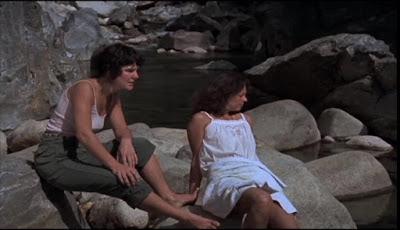
I genuinely dislike The Big Chill, which is about the reunion of a bunch of friends 15 years after college. Return of the Secaucus Seven, which is from three years previous, is about a reunion of college friends 10 years after they graduate. A lot of the themes are the same, including relationship problems and sex, but this movie is a lot better in almost every respect. The main reason this is superior is that the characters feel more real, their problems feel more real, and everyone is substantially less up their own asses. The biggest mystery for me is that one of the leads, Bruce MacDonald, never did another film. I can’t figure out why. It’s also the big screen debut of one David Straithairn.
Film: Flesh + Blood (1985)
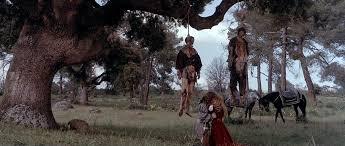
A group of mercenaries led by a man named Martin (Rutger Hauer) help a nobleman reclaim his city. Promised run of the city, the mercenaries are kicked out after a short pillage and decide to get their revenge. This happens when the mercenaries take a carriage containing the promised bride (Jennifer Jason Leigh) of the nobleman’s commander’s son (Tom Burlinson). What follows is a sexual awakening for Agnes, the promised bride and a lot of fighting over what used to be her virginity. There’s also a subplot involving the plague. The story is an interesting one, albeit far more prurient than I thought it was going to be. The cast is good, and includes Ronald Lacey, best-known as the little German dude with the glasses in Raiders of the Lost Ark as well as Bruno Kirby. There’s also full-frontal of Leigh if you’re into that sort of thing.
Film: Super (2010)
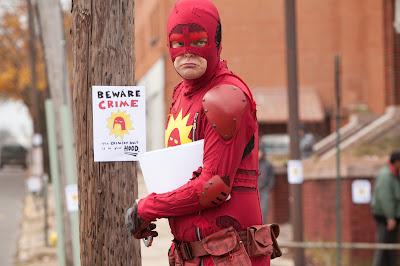
When you look at anything directed by James Gunn, you can’t help but remember that he got his start with Troma. Super is his second feature-length film, and it’s hard to pin down exactly. This is clearly a comedy in many respects, but it’s also very dark and tragic, and explores something akin to severe mental illness. The presence of Rainn Wilson as a line cook whose wife leaves him is not the only connection to The Office; it feels very much like a Michael Scott fever dream. It’s also got a hell of a cast—Liv Tyler, Elliot Page, Nathan Fillion, and many of Gunn’s frequent players like Gregg Henry and Michael Rooker. It’s worth seeing, but it’s very, very dark pseudo-prequel to Kick-Ass.
Film: Bonjour Tristesse (1958)
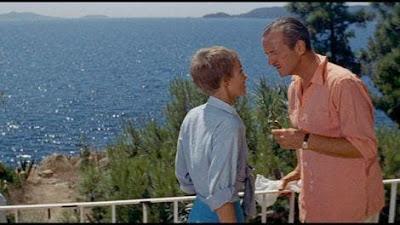
I’ve mentioned my family’s odd connection with Jean Seberg before, so it’s always a little weird for me to watch one of her movies. Bonjour Tristesse is the story of a playboy Raymond (David Niven) and his young daughter Cécile (Seberg) having their carefree life upset by the arrival of Anne (Deborah Kerr), an old friend of Cécile’s mother, a situation complicated by the presence of Elsa (Mylène Demongeot), Raymond’s young mistress. Things naturally end tragically. Interestingly, the film is told in flashbacks in color, and black-and-white in the present in Cécile’s thoughts. This is a sort of coming-of-age story; Cécile grows up in the course of this, and not to her benefit. Sadly, Seberg is the weakest link here—some have said she doesn’t act her lines, but merely says them, and that’s accurate. I want to like it more than I do.
Film: Hardcore (1979)
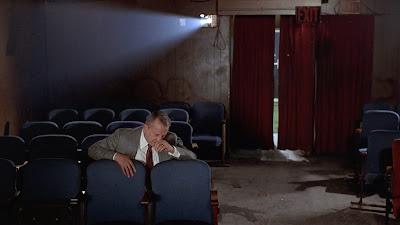
George C. Scott plays a devout Christian man whose daughter (Ilah Davis in her only role) goes out to California on a mission trip and winds up missing. He hires a private detective (Peter Boyle) and discovers that his daughter is now working in the porn industry. Convinced that she has been kidnapped and forced into it against her will, he heads out to find her himself. Not an easy watch, and sort of a precursor to films like 8MM, Mute Witness, and Tesis, but it feels closer to Missing from a few years later. The whole thing really turns on the performance of Scott and Season Hubley, who plays a prostitute who helps him. It feels a little over the top, but it’s actually pretty heartbreaking. If you’re an MST3K fan, this is the film they’re referring to anytime one of them says, “Turn it off! Turn it off!”
Film: Watermelon Man (1970)
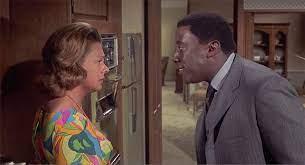
A classic piece of Black cinema, racist white insurance agent Jeff Gerber (Godfrey Cambidge) entertains himself by harassing any Black people he comes across. All of this changes when he wakes up one morning with his skin inexplicably darkened. Hilarity ensues, as well as Jeff getting a serious lesson in being the victim of racism. The initial conceit of the film is a fun one, mildly overturned by the fact that Godfrey Cambridge, despite the heavy makeup, can’t pass as white. This isn’t about that, though—it’s all about the message, and it’s delivered as only Melvin van Peebles could do it. It’s probably more important than it is good, but it’s still pretty good.
